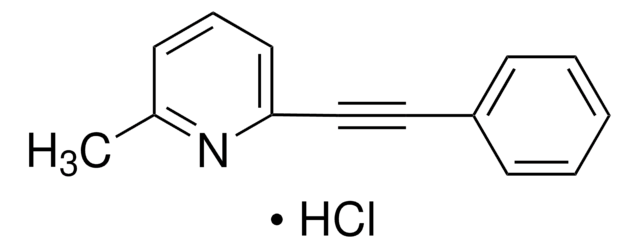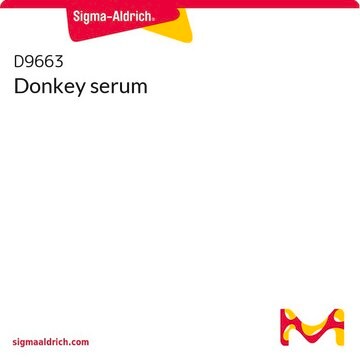L4420
LY-367385 hydrochloride
≥98% (HPLC)
Synonym(s):
(S)-(+)-a-amino-4-carboxy-2-methylbenzeneacetic acid
About This Item
Recommended Products
Quality Level
Assay
≥98% (HPLC)
form
powder
storage condition
desiccated
color
white to off-white
solubility
H2O: >10 mg/mL
originator
Eli Lilly
storage temp.
room temp
SMILES string
Cc1cc(ccc1[C@H](N)C(O)=O)C(O)=O
InChI
1S/C10H11NO4/c1-5-4-6(9(12)13)2-3-7(5)8(11)10(14)15/h2-4,8H,11H2,1H3,(H,12,13)(H,14,15)/t8-/m0/s1
InChI key
SGIKDIUCJAUSRD-QMMMGPOBSA-N
Application
Biochem/physiol Actions
Features and Benefits
Storage Class Code
11 - Combustible Solids
WGK
WGK 3
Flash Point(F)
Not applicable
Flash Point(C)
Not applicable
Certificates of Analysis (COA)
Search for Certificates of Analysis (COA) by entering the products Lot/Batch Number. Lot and Batch Numbers can be found on a product’s label following the words ‘Lot’ or ‘Batch’.
Already Own This Product?
Find documentation for the products that you have recently purchased in the Document Library.
Articles
DISCOVER Bioactive Small Molecules for Neuroscience
DISCOVER Bioactive Small Molecules for Neuroscience
DISCOVER Bioactive Small Molecules for Neuroscience
DISCOVER Bioactive Small Molecules for Neuroscience
Our team of scientists has experience in all areas of research including Life Science, Material Science, Chemical Synthesis, Chromatography, Analytical and many others.
Contact Technical Service








